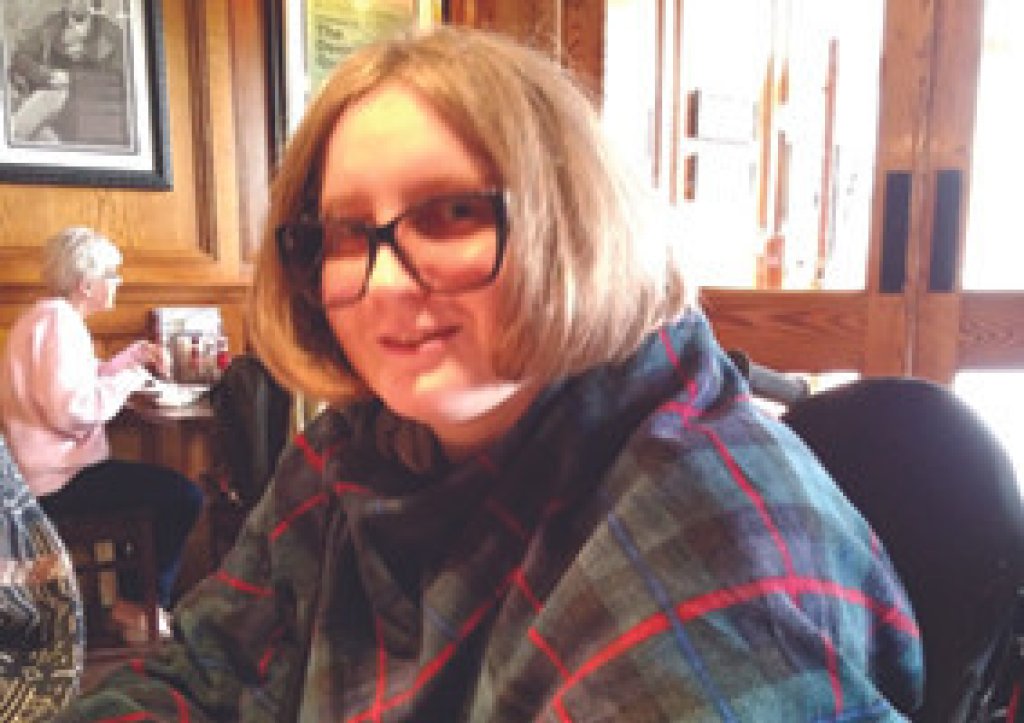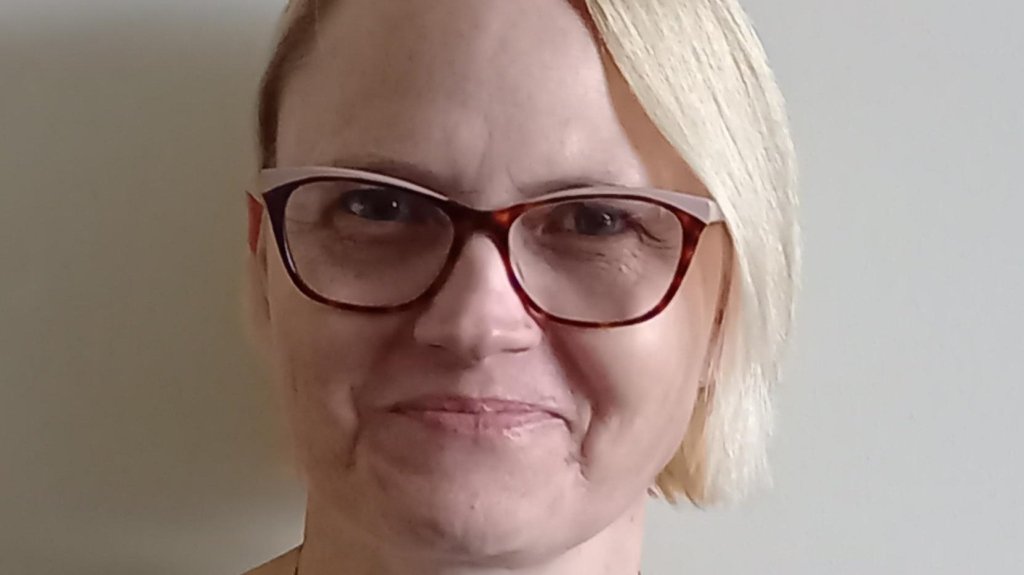This Fabry Awareness Month, we are featuring a range of articles from guest bloggers describing their relationship with Fabry disease. This week, we have Loretta MacInnes, a Fabry patient who wasn’t diagnosed until she was 50 despite having symptoms since childhood.
Information contained in these articles has been collected and written by our guest blogger and does not necessarily reflect the opinions of the MPS Society or its Board of Trustees.

Prologue:
I’m writing this on a day that I feel especially down. So forgive me if I’m a little melancholy. My head, at the moment, feels like it is being squashed in a bowling ball – that’s the only way I can describe it. And my ability to think straight is being squashed with it. I’ve been trying to do a jigsaw to take my mind off it, but have given that up as a bad job. My eyesight is a bit out of focus and writing this is difficult – I keep having to re-write the sentences to make sure they make sense. And I have pretty bad chest pain. In fact, I’m going to have to stop now as I’m feeling a little too poorly to carry on.
Day to Day:
So I have Fabry Disease. I was diagnosed when I was 50 and I am suffering from a variety of heart issues as a result. I usually have chest pain of varying severity along with fatigue, and so my day-to-day life has been pretty badly affected. This restriction has not only impacted my physical abilities but also my mental health.
I am beginning to be a little needle-phobic due to the bi-weekly cannulation. I worry that my veins are scarring up and that it may become too difficult to cannulate me in the future.
It can be difficult to know what each day will bring. I just can’t predict how I’m going to feel. I may have had a good night’s sleep but wake up and be unable to get out of bed. I may wake up feeling OK, then get a bout of chest pain that floors me. On rare occasions, I have a day when I feel like my old self, being able to think straight and have a little energy - these are the days that can leave me feeling especially frustrated and depressed because as soon as I start to do something that requires a little energy, angina starts or the fatigue suddenly hits me, and I am rudely reminded of my limitations.
Before I became ill I had jobs that were both challenging and stimulating, including working on a policy to bring more technology into healthcare. My brain was used to multi-tasking and I thrived on fast-paced decision making and making change happen. Since my diagnosis, I just don’t think in the same way. No doubt, the cocktail of drugs I take every day has impacted this change, but the Fabry itself could also be partly responsible for this deterioration
Family:
Being a parent can be pretty stressful regardless of the age of your kids. Mine are all young adults now, but I still worry about them. In addition, two of my kids have Fabry Disease and that just takes the worry to another level. I also have indescribable guilt. I gave them this genetic anomaly that impacts everything they do. It’s my fault that they have terrible neuropathic pain, that they have digestive issues, that they have to have an infusion every two weeks that restricts their freedom. It’s my fault that my youngest has crippling anxiety and depression. These thoughts have caused many a sleepless night.
Apologies for the negativity. I wanted to give a flavour of what’s bad about living with Fabry. On a positive note, I am so lucky to have a very caring family - they make life bearable and have helped me to develop a ‘new normal’. This ‘new normal’ incorporates the infusion regime that takes over our home every two weeks. They integrate the many appointments that necessitate up to a full day of tests and discussions. They accept the disruptions caused by health issues that require visits to A&E.
Without my family, I don’t know how I would cope and I am so grateful to them for their unquestioning support.
Invisibility:
Because Fabry is an invisible illness, it is difficult for some people to understand just how it can affect those who have the diagnosis – a lot of people think that if you look fine then you must be OK. Fabry can also limit your mobility, but again, the reason for this limitation is not something that can be seen. This can be an issue for those people living with Fabry, as well as for anyone who has mobility restrictions due to an invisible illness. Dealing with the embarrassment and guilt of having an invisible illness that necessitates using disabled facilities or needing a Blue Badge are issues that affect thousands of people in the UK but are just not effectively addressed. Educating the public on invisible disability is vitally important and more needs to be done.
A Sense of Purpose:
Having a sense of purpose can be difficult when you have a rare disease. Educating people on rare diseases, invisible disabilities, and identifying the extra support needs for newly diagnosed teens and young adults, were some of the reasons that I started my website and why I write about Fabry. This website and blog have given me a sense of purpose – something that makes me feel that I have a role in society again. If the writing I do helps raise this awareness in just a tiny way, then at least I am doing something positive for the rare disease community.
These channels also help me keep abreast of current research and trials. Thankfully there is a great deal of ongoing research for Fabry, including a focus on gene therapy. Clinicians I have spoken to are hopeful that there will be gene therapy available within my lifetime. I’m honestly not concerned about myself but will be so grateful if trials produce a gene therapy that is suitable for my kids and the thousands of other people with Fabry Disease.
Finally, living with Fabry has given me a connection to the rare disease community. Life within this community is full of joy and tears in equal measure. It is supportive, with no expectation of payback and just chock full of inspirational people. I didn’t choose to have Fabry, but as I’m stuck with it then I am fortunate to be part of such a caring community of fellow Zebras.
Loretta MacInnes
Follow me: @LorettaMacInnes
Website: www.myfabrydisease.com
More information:
If you would like to know more about Fabry disease, please visit our dedicated Fabry page.



